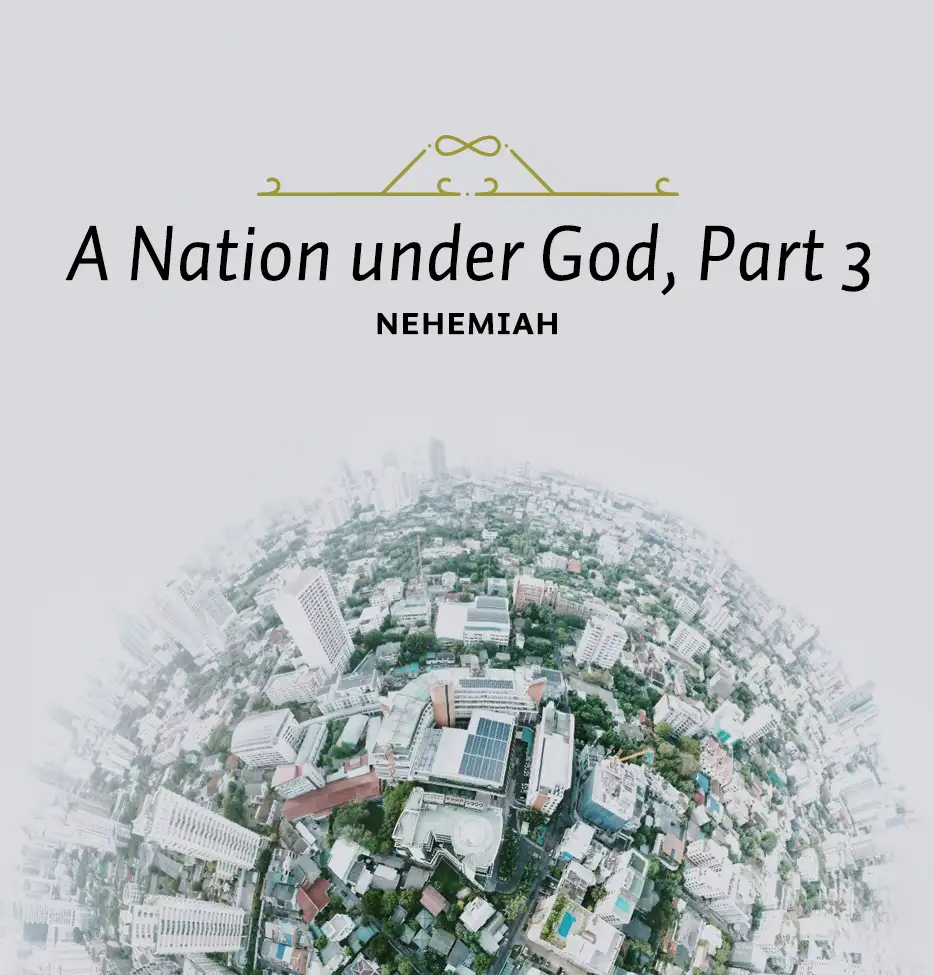3. The responsibility of the people. The third striking characteristic of this covenant is the people’s strong sense of responsibility. Nothing in the covenant looks to other people to do what they should do. Nothing sets some of them apart from these responsibilities, or assigns specific tasks to one group and other tasks to another. The dominant word is “we,” referring to the whole people together. It was as one whole people that they took it upon themselves to keep God’s entire law.
Who else would do it?
It is the same for us in our response as Christians to the teachings of Jesus Christ. If we will not obey Him, live holy lives and be His witnesses in this world, it is certain that no one else will. The responsibility is ours alone.
The people had obligated themselves to keep the whole law, according to verses 28 and 29. But a general promise without specifics does not mean much. Therefore, the people expressed their intentions in a series of specific commitments. Their choice showed clearly that it was these items that needed their attention.
1. The family (v. 30). Wisely they began with the family, promising not to intermarry with the peoples of the lands roundabout. This was not racial snobbery or prejudice, since the Jewish people had always contained some individuals of other races. The concern was religious, as the key verses in Exodus 34:12-16 make clear. It was the danger of having the people be led away to the worship of the pagan gods of the surrounding nations as a result of intermarriages. Ezra had dealt with the problem thirteen years earlier. Malachi spoke against it. Even Nehemiah would have to face it again at the very end of his period of service (ch. 13).
There is a reason why the defense of godly families comes first in this list of concerns, and it is that the family is the basic unit of society, godly or otherwise. In fact, all great social institutions have come from it. The home was the original seat of education, the first school. So grammar and high schools, colleges, universities and other kinds of training centers owe their ultimate existence to this basic family function. The home was the first hospital. Indeed, for centuries it was the only place for the care of the sick and dying. All medical facilities owe their ultimate existence to the home. So also with government. The home was the original seat of government. Patriarchal societies, monarchies and democracies have developed from it. The significance of this is that if the family stands, society will stand. But if the family is destroyed, the nation will deteriorate rapidly.
And it works the other way too. Charles Swindoll notes that “when the morals of a nation are under stress, the home is the first to suffer.”1
This is why Communist and other revolutionary governments have been so anxious to weaken or destroy the family, setting children against parents and sometimes physically separating children, husbands and wives. They know that the family is a strong unit of its own and that, if they can destroy it, they will have greater success in building a correspondingly strong allegiance to the state. It is also why Christians must defend the family, in spite of many contemporary attempts to tear it down. We must do it for the good of our country and for Christianity itself.
The apostle Paul knew this. In words that echo the concern of the Jewish people under Nehemiah, he wrote, “Do not be yoked together with unbelievers. For what do righteousness and wickedness have in common? Or what fellowship can light have with darkness? What does a believer have in common with an unbeliever? . . . Dear friends, let us purify ourselves from everything that contaminates body and spirit, perfecting holiness out of reverence for God” (2 Cor. 6:14, 15; 7:1).
1Charles R. Swindoll, Hand Me Another Brick (Nashville, TN: Thomas Nelson, 1978), 163-164.






